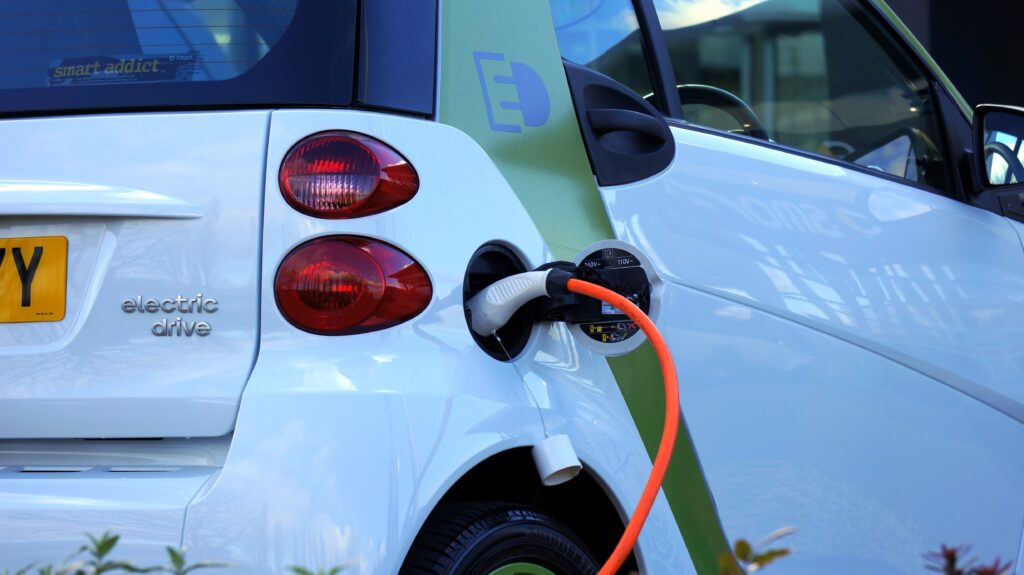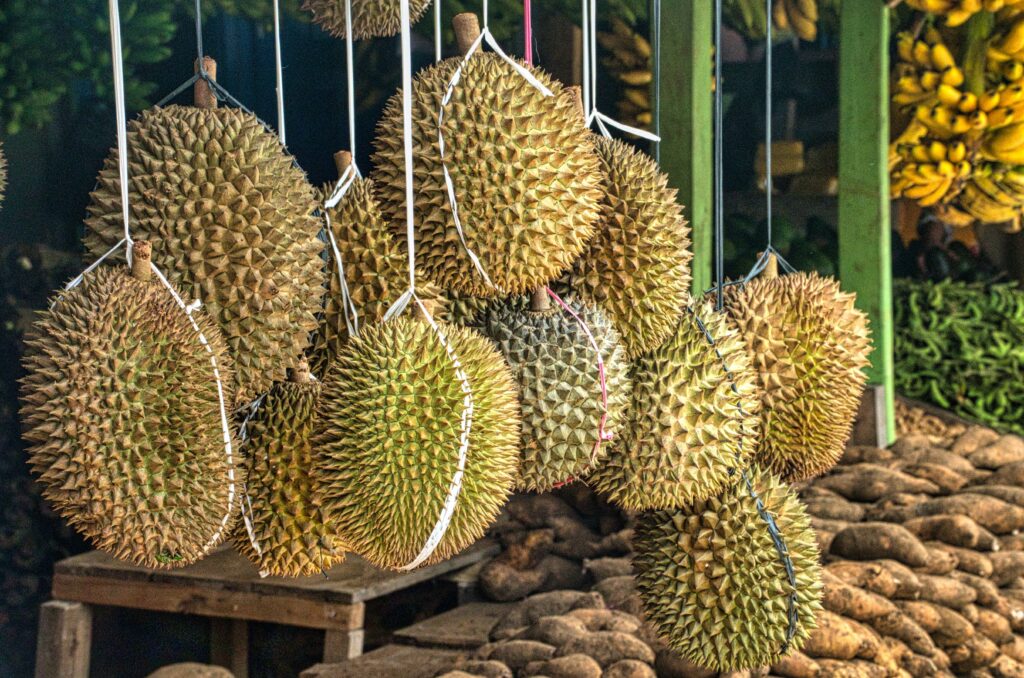The future really is now. Lithium-ion batteries are in anything from our mobile devices to our electric cars. However, they degrade over time and come with a huge environmental consequences. Scientists are on the hunt for ways to store and carry energy that is kinder to the planet: including durian fruit, the world’s smelliest fruit.
Lithium-ion batteries have transformed our ability to store energy and carry it around in our modern devices. It was in fact Sony that first commercialised the battery in 1991, as a solution to prolong the limited battery life of its handheld camcorders. Many gadgets we use today are powered by lithium-ion batteries: smartphones, laptops, and even electric toothbrushes. The three scientists behind the invention actually won the Nobel Prize in Chemistry for enabling this technical revolution.
Perhaps the most modern demand for lithium-ion batteries has been electric vehicles, as a measure to reduce pressure on fossil fuels. As renewable energy sources take up more of the electricity supply around the world, huge battery banks are likely to be needed to store excess energy in order to still have power when there is no wind or sunshine. The demand for lithium-ion batteries is exponentially growing. Over seven billion are sold worldwide each year. By 2027, this is expected to grow to 15 billion.

Yet, as we know from our phones, lithium-ion batteries reduce capacity the older they become. In extremely hot or cold temperatures, performance falls. In certain conditions, they can even catch fire and explode. Not to mention, mining the metals needed for lithium-ion batteries comes with a high social and environmental cost. Currently, one million litres of water are used to extract just 900kg of lithium.
Scientists all over the world are hoping to develop new types of batteries to overcome these problems. So far, they have harnessed a whole array of materials, from diamonds to the stinky durian fruit. They are on the hunt for new ways to power the technologies of the future in a more sustainable way.
Vincent Gomes, a chemical engineer at the University of Sydney, and his team thought they would find a new way to power our devices while also tackling the issue of food waste. They are turning waste from the world’s smelliest fruit, the durian, and the world’s largest fruit, the jackfruit, into a supercapacitor capable of charging phones, tablets, and laptops in minutes.
Supercapacitors are an alternative way of storing energy. They act like reservoirs, able to quickly charge and then discharge energy in bursts. Although they tend to be made of expensive metals, such as graphene, Gomes’ team has turned inedible parts of durian and jackfruit into carbon aerogels – porous super-light solids with remarkable natural energy storage properties. The spongey core of each fruit is heated, freeze-dried and then baked at temperatures of over 1,500°C. The resulting black, highly porous, ultralight structures can then be fashioned into electrodes of a low-cost supercapacitor.
Durian and jackfruit electrodes demonstrate outstanding performance, making them a green, low-cost energy solution for charging our everyday needs – phones, laptops, and even vehicles.
Over 70% of durian fruit is thrown away. Durian is renowned for its stench. The odour is often compared to rotten onions, raw sewage, or turpentine. The fruit is banned at hotels in Thailand, and in 2018, its smell temporarily grounded a plane in Indonesia. Even Gomes’ wife, during the initial stages of his research, removed all the stinky fruit from the house within a day.
The toxic legacy of mining cobalt stinks more though. Not only does it harm the health of communities surround the mines, but it involves blatant child labour.
Discover more ways the transport industry is tackling the problems surrounding electric vehicles here…




